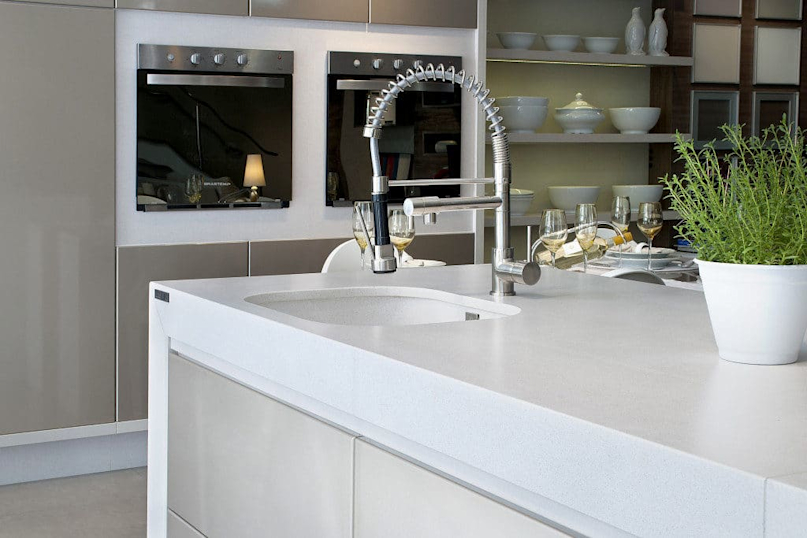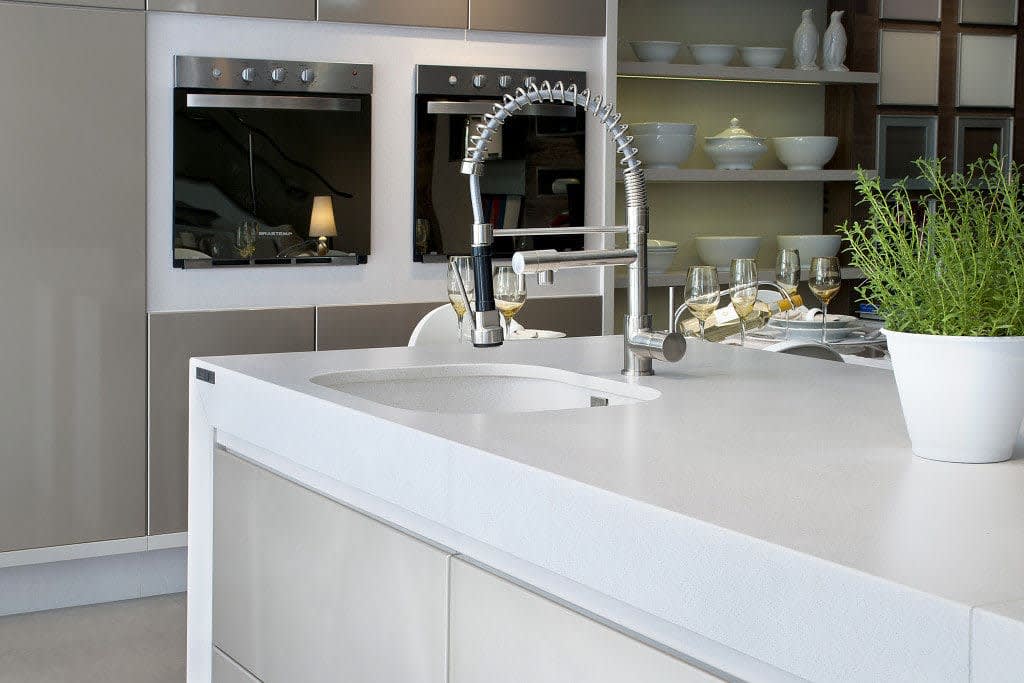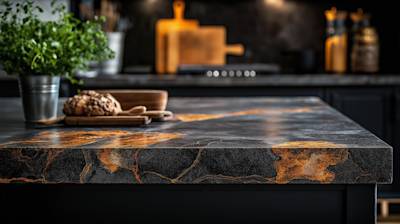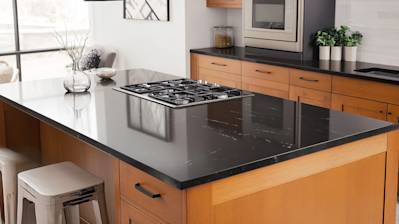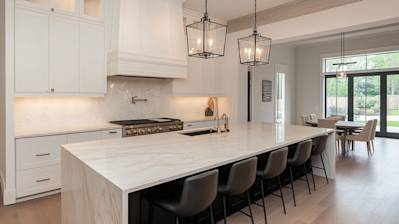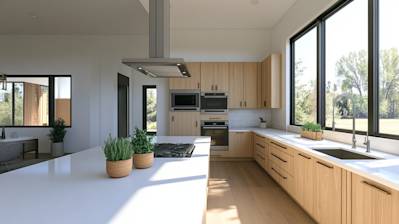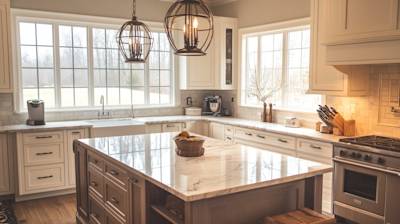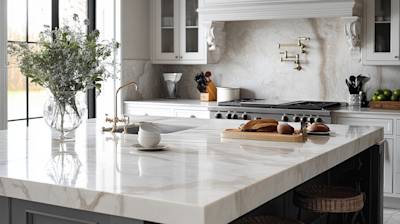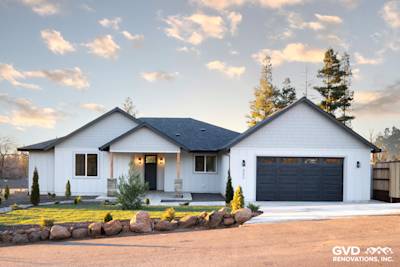When it comes to kitchen decor, a major aspect often overlooked is countertop thickness. Interesting as it may sound, the thickness of your countertop could be a game-changer, transforming your kitchen's functionality and aesthetics. This ultimate guide leads you through the ins and outs of choosing the perfect countertop thickness for your home.
Understanding Countertop Thickness
A countertop's thickness is usually measured in millimeters or inches, depending on your geographical location. Standard countertop thickness ranges between 1.5" to 2.5", but lesser or greater values can be custom-built to fit your desired design. Thinner countertops often present a streamlined, contemporary look, while thicker ones exude a bold, hefty characteristic.
The Importance of Countertop Thickness
Several crucial design and functional aspects tie in with your decision on countertop thickness. Let us dissect these aspects.
Durability and Longevity
A better thickness usually brings with it longer lifespans and lesser prospects of damage. A thick granite or quartz countertop, for instance, will be resilient against chips, cracks, and general wear and tear, ensuring your countertop lasts decades.
Aesthetics and Design
Thickness can impact the overall visual appeal and create a focal point in your kitchen. Choose countertop thickness that aligns well with the rest of your decor, to create a unified and well-flowing space.
Value Addition
Investing in a sturdy, thick countertop increases the home's market value. After all, potential buyers are likely to be pulled in by the promise of longevity.
Common Types of Countertops and Ideal Thickness
Different materials call for varying optimum countertop thicknesses. Here, we delve into the specifics.
Granite Countertops
Granite countertops, known for their striking semblance and durability, typically come in 1" or 1.25" thickness. The 1" variety, also known as 2 cm, is ideal for bathroom vanities, fireplace surrounds, and other areas less prone to heavy-duty usage. On the other hand, the 1.25", or 3 cm variation suits high-usage areas, like kitchen counters, boasting a higher resistance to damages.
Quartz Countertops
Quartz countertops, known for their low maintenance and immense variety, usually come in 1.25" or 1.5" thickness. These thickness options stand well against everyday use and offer any kitchen a polished, modern look.
Marble Countertops
With marble countertops, luxury and timeless elegance come to mind. A standard thickness of 1" or 1.25" works best for marble. It's crucial to remember that being a relatively softer material, marbles with lesser countertop thickness may require additional supports.
Considering Countertop Edges with Thickness
The thickness of your countertop can directly impact your choice of edges – beveled, rounded, or square. Thicker countertops tend to have more leeway for customization on the edges, making them an ideal choice for distinctive designs.
Deciding on your countertop thickness requires a balanced consideration of aesthetics, functionality, and durability. When chosen wisely, countertop thickness has the potential to complement and amplify your kitchen's beauty, while considering the practical aspects of day-to-day use.
Frequently Asked Questions About Countertop Thicknesses
When it comes to selecting countertops for your kitchen or bathroom, it is essential to understand various factors like material, strength, and most importantly, the thickness. Countertop thickness is usually an overlooked aspect, but it plays a crucial role aesthetically and functionally. Here, we have compiled some of the frequently asked questions about countertop thickness and related topics.
1. What is Standard Countertop Thickness?
The standard thickness of a countertop typically ranges from 1.25 inches to 1.5 inches. However, the thickness can vary depending on the requirements and the type of material used. For instance, laminate countertops traditionally have a thickness of 1.5 inches while solid surface materials like granite and quartz range between 0.75 to 1.5 inches.
2. Does the Thickness of a Countertop Really Matter?
Yes, the thickness of a countertop does matter. Thick countertops, specifically 1.5 inches, are more durable and resistant to damage. They also give the kitchen a robust and luxurious appearance. However, thinner countertops can be lighter, easier to install, and require less raw material, making them more budget-friendly. Therefore, the choice largely depends on personal requirements and style preferences.
3. Is It Possible to Thicken a Countertop?
Yes, it is possible to thicken an existing countertop with a method called edge build-up. This involves applying additional material to the edges of the countertop to give an illusion of thickness. Several materials like laminate, solid surface, and quartz countertop may employ this method.
4. What is the Ideal Thickness for a Granite Countertop?
Granite is a sturdy material; hence, even a 0.75-inch thick granite countertop is reasonably durable. However, for better impact resistance and high-end appeal, a 1.25 inch or 1.5-inch thickness is ideal.
5. How Thick Should a Marble Countertop Be?
Marble countertops are traditionally 1.25 inches thick. This thickness is adequate for most applications. However, you may opt for a 0.75-inch thick marble countertop if you're looking for a lightweight, budget-friendly option, or a 2-inch thickness for a luxurious appeal.
6. How is Countertop Thickness Measured?
Countertop thickness is measured in inches or millimeters from the surface's top to the bottom. Round off the measurement to the nearest quarter of an inch or whole millimeter.
7. Does Countertop Thickness Affect Price?
Yes, countertop thickness indirectly affects the price because thicker countertops require more material, and hence, cost more. However, other factors like the type of material, fabrication, and installation costs also significantly impact the overall price.
8. How Thick Should a Butcher Block Countertop Be?
Butcher block countertops are usually between 1.5 and 2.5 inches thick. The thickness should ideally be proportionate to the size of the kitchen – larger kitchens can accommodate thicker countertops, while smaller kitchens may appear best with thinner ones.
9. Can I Choose Different Thicknesses for Different Areas?
Yes, it is possible to use different thickness countertops in different areas of the kitchen. For instance, you might opt for a thicker countertop for your kitchen island as a visual highlight.
10. Should I Consult a Professional for Choosing Countertop Thickness?
While it is not necessary, consulting with a professional can provide insight into what countertop thickness would work best for your kitchen, considering factors such as aesthetics, function, and budget.
To Sum Up
By keeping these answers in mind, you can make an informed decision about countertop thickness that correlates well with your kitchen or bathroom’s design requirements. So, whether you prefer a thick granite countertop for a luxurious appeal or require a thin laminate countertop due to financial constraints, it is essential to make sure that the thickness aligns with your personal design vision and practical needs.
Summary
The preferences for countertop thickness can vary widely depending on the type of material used, the overall design of the kitchen, and personal aesthetic tastes. Although the standard thickness for most countertop materials is generally around 1.25 inches, there are also thinner options that some homeowners prefer due to its modern look. It's important to consider your countertop thickness carefully as it can have a significant impact on the functionality and style of your kitchen space.
Material options for countertops are endless. It can range from granite, marble, quartz, to concrete, each coming with their own standard measurements and thickness. The countertop thickness of these materials might play a role in their durability, resistance to heat, stains and scratches. Therefore, while choosing, one must also consider the lifestyle and usage habits. Granite countertops are usually thicker and hence more durable.
Moreover, countertop thickness can also play a major role in determining the costs, with thicker counters usually being more expensive. This is due to the extra material and labor involved in their installation. Therefore, while embarking on your kitchen remodeling project, ensure to consider all these factors about countertop thickness before making a decision. Because it can have a lasting impact on the functionality, aesthetics, and overall costs of your kitchen design.
About GVD Renovations & Remodeling
Welcome to GVD Renovations & Remodeling! We're your go-to home renovation specialists, located right here in the heart of Roseville, CA! Our mission is to transform your homes into spaces of comfort, style, and function. Having been in the renovation game for over a decade, we bring top-notch craftsmanship, excellent customer service, and unparalleled attention to detail to every project. We're proud to be the trusted choice of homeowners all over the Roseville area. Thank you for considering us to take your home to the next level!
Tags: countertop thickness, home renovation, kitchen remodel,



